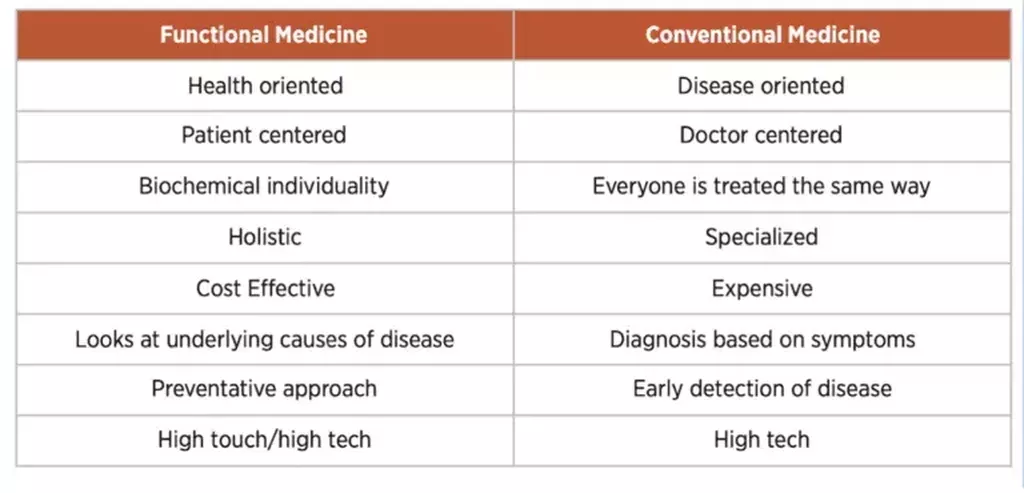
What is functional medicine?
Functional medicine looks for the root cause of symptoms, and conventional medicine treats the symptoms.
Think of a large, old tree that has started to develop some disease. We might notice damaged and irregular branches and leaves.
How might we react? We could approach the damaged branches and leaves individually. We could support the most misshapen limbs with scaffolding. We could paint the injured areas to make them look healthy again.
These things might temporarily help. But if we don’t figure out what is causing the damage or what made the tree susceptible to disease in the first place, the tree will likely continue to get worse. For example, if the tree is in an area that is getting toxic water runoff, we will need to give it clean water to heal.
The same is true for humans. If we have chronic pain in our arms, for example, we can treat the pain with excellent medicines that decrease pain. However, if we don’t get to the root cause of the pain, we’ll have to keep taking higher and higher doses of the pain medicines to get the same relief.
Often, the symptoms’ root cause does not seem directly connected to the problem. Much like the tree soaking up toxic water and having damaged branches, if we are soaking up toxins, we can develop a myriad of symptoms ranging from autoimmunity to cognitive decline to skin problems to depression. The list goes on. The root cause often lies in a disrupted gut microbiome with increased gut permeability. We discussed gut health in another blog article. If your gut is not absorbing nutrients well, your whole metabolic system will suffer.
It will suffer if the tree is planted in soil devoid of nutrients. The same is true for humans. Sometimes we need to supplement with nutrients while re-building a healthy gut. The goal is always to restore the body to an optimal state, and support is often needed along the way.
If a patient comes in with suboptimal hormones, as we discussed in an earlier blog, we want to address and treat the root cause of the dysregulation. However, in the meantime, hormone supplementation will help optimize your metabolic systems, which will speed up and support the body’s natural healing processes.
A functional medicine approach usually involves a fair amount of testing to identify problems before they manifest in the disease. We often do extensive functional blood tests to look for markers of inflammation, autoimmunity, and impaired metabolic functions. We look at nutrient absorption, toxicities, and chronic infections. We also test your microbiome for dysbiosis and food sensitivities. We might also evaluate your genomics.
We use these results to support your body with vitamins, minerals, herbal supplements, and hormones while treating the underlying causes. We look at lifestyle factors that may impact your health and help you optimize your sleep, diet, stress management, and movement. We treat that damaged branch while addressing what is going on in the roots, and by doing that, we help get your body optimized and back to doing what you love to do. Oftentimes, it has taken decades for your body to get to where it is. The journey back may take 1-2 years. It’s a journey worth taking.
